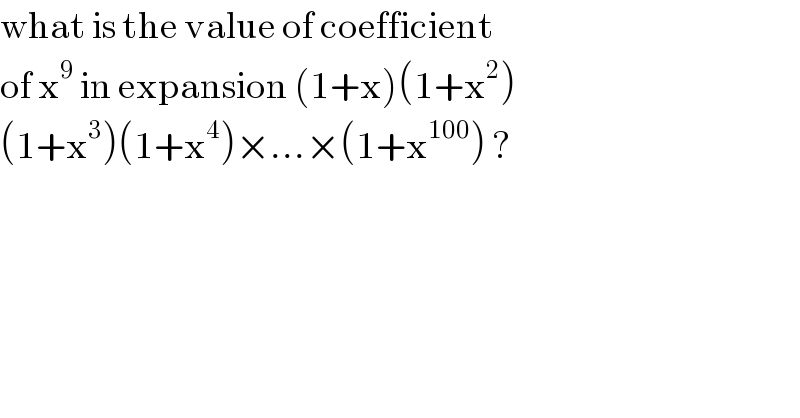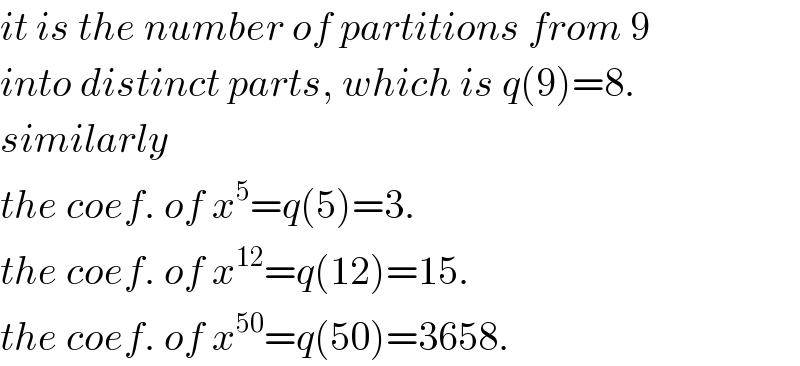
Question and Answers Forum
Previous in Permutation and Combination Next in Permutation and Combination
Question Number 93450 by john santu last updated on 13/May/20

Answered by john santu last updated on 13/May/20

Answered by mr W last updated on 13/May/20

Commented by john santu last updated on 13/May/20

Commented by mr W last updated on 14/May/20

Commented by mr W last updated on 14/May/20

